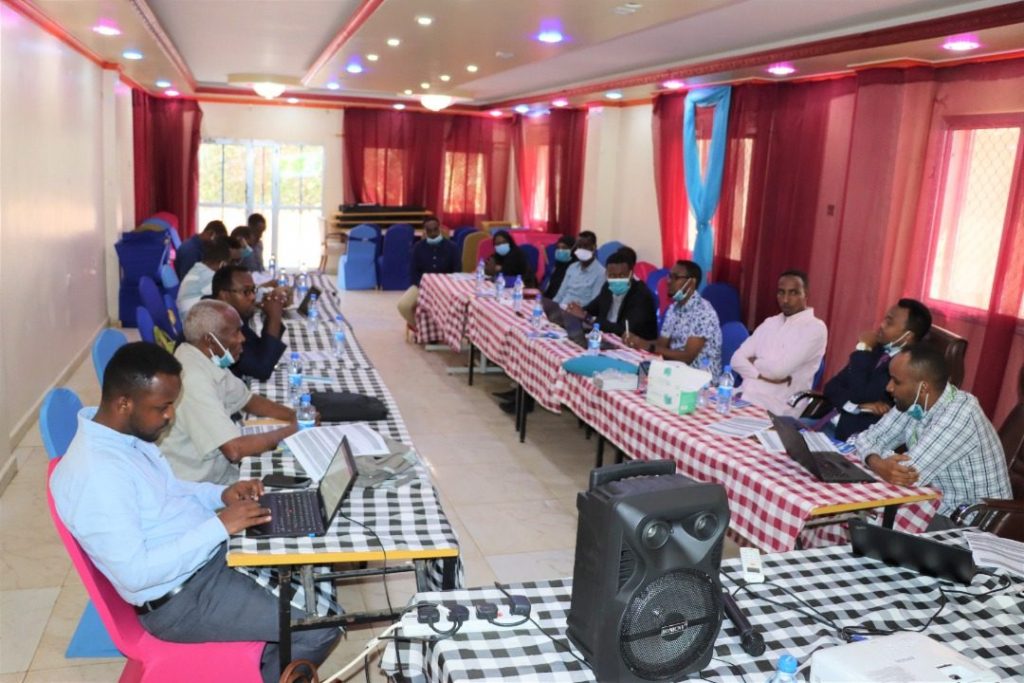FCA launches an ECHO-funded project to enhance access to Education for displaced children in hard-to-reach areas of Southwest State of Somalia

We are happy to announce the launch a 12-month Education in Emergencies project in the Southwest State (SWS) of Somalia to fulfil the right to education of displaced children in areas that especially hard to reach. The READ Project is aimed at restoring and maintaining safe access to quality education for 7,000 crises-affected children so that they can enter or return to protective learning opportunities.
FCA will be implementing the project with its local partner Gargaar Relief Development Organization (GREDO) and it will operate in hard-to-reach areas of El-Berde Baidoa and Hudur. The project is funded by EU Civil Protection and Humanitarian Aid (ECHO) in its quest to support the improvement of access to quality education in Somalia.
The READ project is striving to improve children’s access to a safe, inclusive and protective learning environment; to enhance the capacity of teachers and other education personnel to provide quality education and learning outcomes; and to strengthen safety and child protection mechanisms in target schools for psychosocial well-being, protection and safeguarding of affected children.
In El-Berde, only 8 % of school-aged children (1,574 in total, incl. 884 males and 690 females) are enrolled in one public primary school and eight meant for IDPs, with 12,198 children estimated to be out of school. Although the district only hosts 3,500 IDPs, FCA assessed that the needs for education are incredibly high, as 698 children (402M; 296F) are learning in the only available six classrooms, where there are on average 116 students per classroom.
Similarly, Hudur has the population of around 100,437 with around 42,504 IDPs (24,322 males and 36,482 females) residing in 26 IDP settlements across the district.
The Director General of Ministry of Education (MoE) of Southwest State of Somalia Fadal Abdullahi Mursal attended the launch meeting. He told that a delegation from the MoE visited Hudur town late last month to investigate the impact of FCA’s earlier ECHO-funded education project. They found great impact on the ground in terms of improved access to education.
“During our stay in Hudur, we had a meeting with the CECs and parents and they informed us that they are fully satisfied with FCA’s education program, especially the Accelerated Basic Education (ABE) system which supported many out-of-school children,” says Fadal Abdullahi Mursal, the DG of Ministry of Education of Southwest State.
The deputy minister for Education of Southwest hailed the ongoing FCA efforts in Bakool Region and requested FCA to expand their education projects and reach to the other Southwest State regions.
“Giving children a brighter future through education comes with commitment. I therefore request FCA to expand their education programmes to Lower Shebelle which is also part of Southwest State Regions,” says Abdifatah Isak Mohamed.
Finally, FCA’s Acting Somalia Country Director and the Programme Manager Mr. Bashir Fidow has appreciated the MoE-SWS partnership and pledged that FCA will continue working to enhance education for displaced people in hard-to-reach areas.
“On behalf of FCA Somalia, we are happy to be working closely with the Mistry of Education of Southwest State as a partner. FCA has been providing and implementing Education in Emergencies programmes in SWS since 2018, including Hudur town in Bakool region, which is a hard-to-reach zone,” Bashir Fidow says. “Our new ECHO project 2021-2022 is expanded to Elberde, which is also a hard-to-reach area. FCA will continue working with the MoE of the Federal Government of Somalia and Federal Member State of Southwest to make sure that children in hard-to-reach areas receive quality education and that teachers are qualified.”
FCA has started its EiE response in Baidoa and other hard to reach areas of SWS in 2018, with support from ECHO HIP 2018 and 2020, Ministry for Foreign Affairs of Finland (MFA) and FCA’s own Disaster Fund. To date, the interventions have enabled 15,500 crisis-affected children (45 % girls and 400 CWD) have access inclusive education through safe learning environments, improved quality of education and school-based protection mechanisms. Among these children, 1299 (45 % girls) are Accelerated Basic Education (ABE) learners.
Text: Mohamed Dugoow